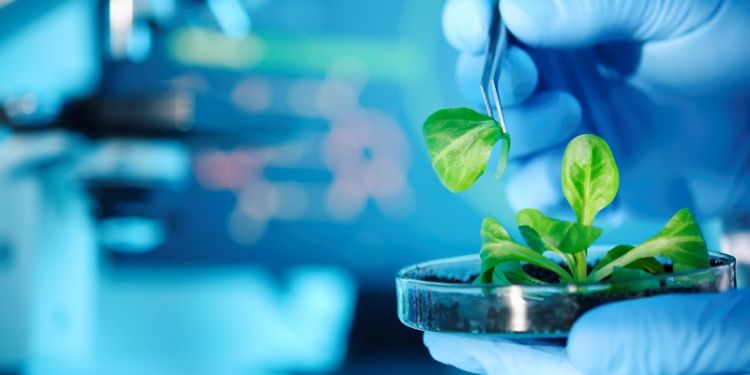Research highlights

In the 2021 Research Excellence Framework (REF), 91% of our research outputs were classed as ‘world-leading’ or ‘internationally excellent’ in terms of originality, significance and rigor. This was achieved having:
Delivered impactful research
Conducted research that adds to the growing body of evidence linking processed meat consumption to increased risk of a range of non-transmissible diseases.
Developed a novel process for chocolate tempering, which resulted in improved product quality and reduced energy use through large scale chocolate manufacturing.
Produced research that has influenced dietary and food safety guidelines internationally. Such as, lead authors on the SACN report on Carbohydrates and Health, which underpinned new national dietary guidelines for sugar and fibre intake. And research into aflatoxins and health, which contributed to food safety protocols and guidelines worldwide.
Developed a new hydrogel which has significant potential for oral care products that can help with dry mouth relief.
For the first time, created synthetic soft surfaces with tongue-like textures using 3D-printing, opening new possibilities for testing oral processing properties of food, nutritional technologies, pharmaceutics and dry mouth therapies.
Through a Horizon 2020 project, revealed the need for the next generation of ‘health conscious’ products to focus on food texture to enhance the feeling of being full.
Through a collaboration with the World Health Organization (WHO) Regional Office for Europe, supported the development of dietary standards for baby foods.
Led a major study which found that less than two in 100 primary school children in the UK eat packed lunches that meet nutritional standards.
Led research that uncovered the fundamental mechanism by which human saliva lubricates our mouth.
Through a collaboration with Münster and Erlangen universities, discovered a new antibiotic-free approach which could help prevent and treat one of the most widespread bacterial pathogens.
Developed a new online tool that provides more efficient way for professionals to monitor diet.
Grown our interdisciplinary research
Contributed to several national and international initiatives that facilitate interdisciplinary research, which includes leadership of the N8 Agrifood initiative. This was an £10m Higher Education Funding Council for England (HEFCE)-funded programme that evaluates the integrity and resilience of global Agri-food supply chains in the face of environmental and socioeconomic challenges.
Received several prestigious award from organisations such as the Nutrition Society and the Royal Society of Chemistry.
Produced industry-relevant outputs, including industry co-authored publications (7% of total outputs), 5 patent applications and the creation of a spin-out company, Dietary Assessment Ltd.
Seen a three-fold increase in Scopus-indexed publications, with 48% in top decile journals (CiteScore), 56% with international and 7% with corporate co-authors, and a 10% increase in field weighted citation index.
Collaborated with partners across the globe
Hosted 119 visitors from 17 countries and established multiple strategic partnerships with prestigious organisations in China and Africa.
This includes a joint laboratory with Jiangsu University to develop remote sensing technologies for food safety, the International Food Science Consortium, and a Biotechnology and Biological Sciences Research Council (BBSRC) FSNet ARUA Centre of Excellence in Food Security with the University of Pretoria.
Designated a World Health Organisation (WHO) Collaborating Centre for Nutritional Epidemiology with the remit to support WHO in collecting, analysing and interpretation of dietary data in the context of nutritional epidemiology.
Supported our postgraduate research community
Trebled PhD awards, with significant growth in industry-facing Doctoral Training Partnerships (DTPs), including Centres for Doctoral Training (CDTs) and investment in scholarships, training, and facilities.
The CDTs include: Molecules to Product, Soft Matter for Formulation and Industrial Innovation, and Soft Matter and Functional Interfaces. Collectively they involve more than 20 multinational member companies, for example GSK, Nestlé, Pepsico, and Syngenta.
Delivered industry-relevant training as part of the CDTs, which provides scientific cohort-based training to create future leaders, and transferable skills training to translate science to business.
Invested more than £900k in studentships and financial support for PGRs. This included PGR studentships for newly appointed academic staff, match funding for Home and International Scholarships and financial support for PGR training.
Included PGRs as a central part of our overall strategy to develop the next generation of scientific innovation leaders. PGRs contribute to output and impact activities, including 11% of REF outputs, 20% of patents, and delivery of public engagement activities such as Pint of Science.
In line with University strategy to implement blended, research-informed learning, secured funding to develop two Massive Online Learning Courses (MOOCs) aimed at PGRs from around the world. Our course Global Food Safety and Nutrition is through the British Council Educational Partnership, while Nutritional Approaches to Food Security is funded by BBSRC as Strategic Training Awards for Research Skills (STARS).
Contact us
If you have a enquiry, please contact Professor Anwesha Sarkar, Director of Research and Innovation.

